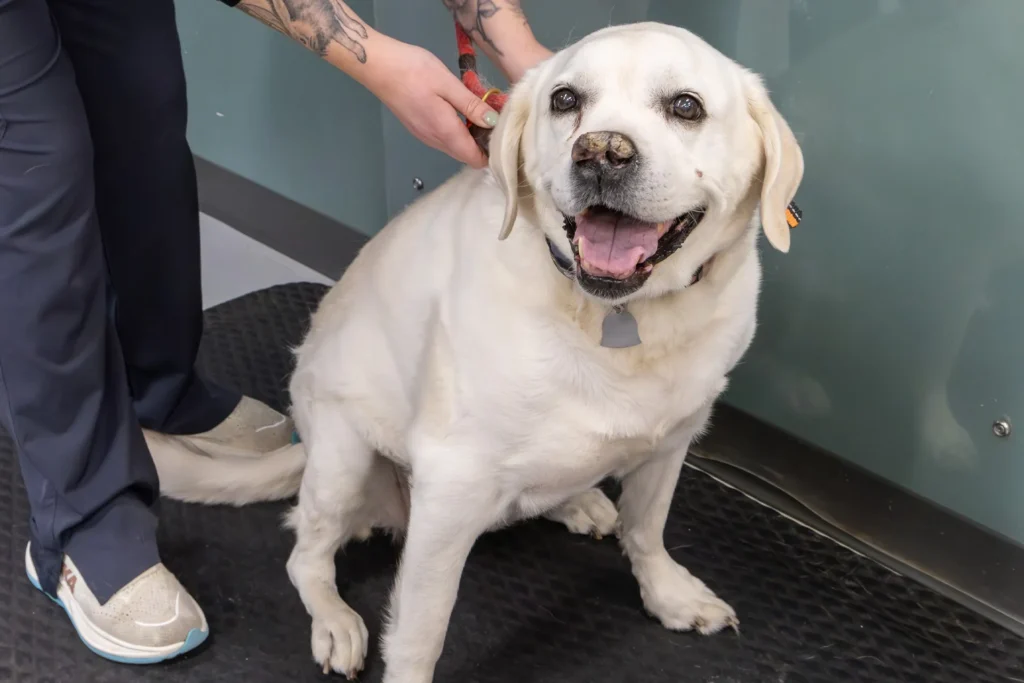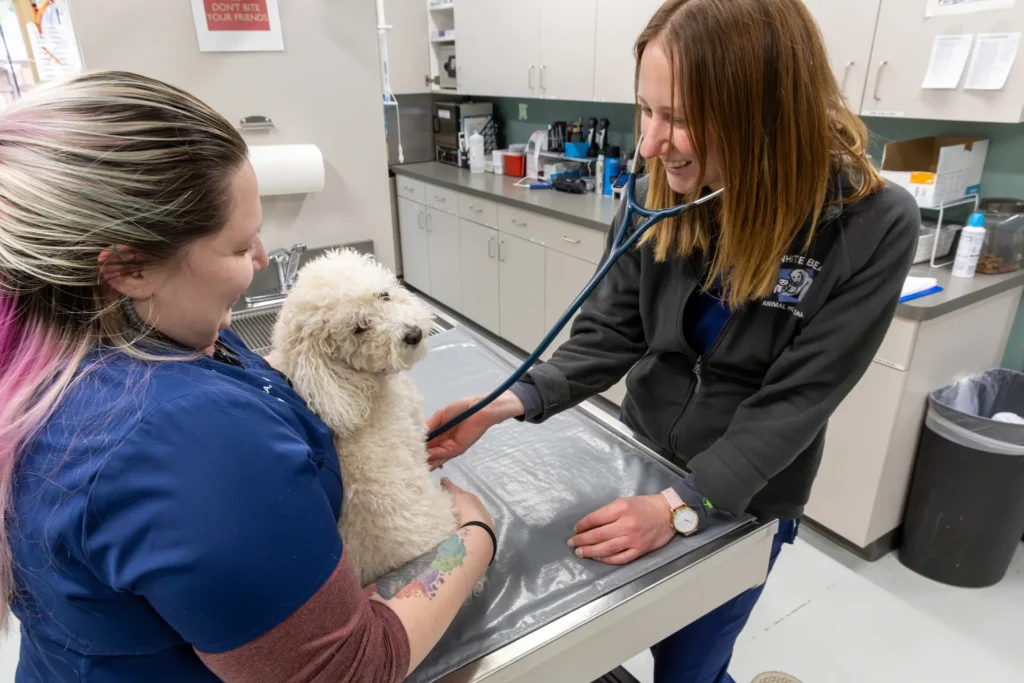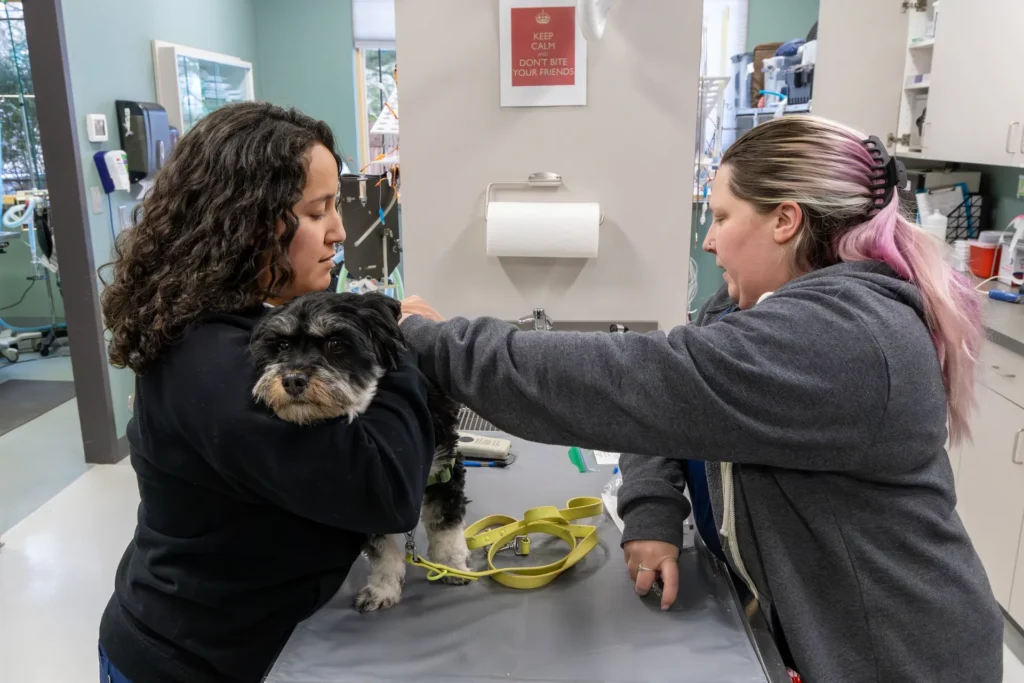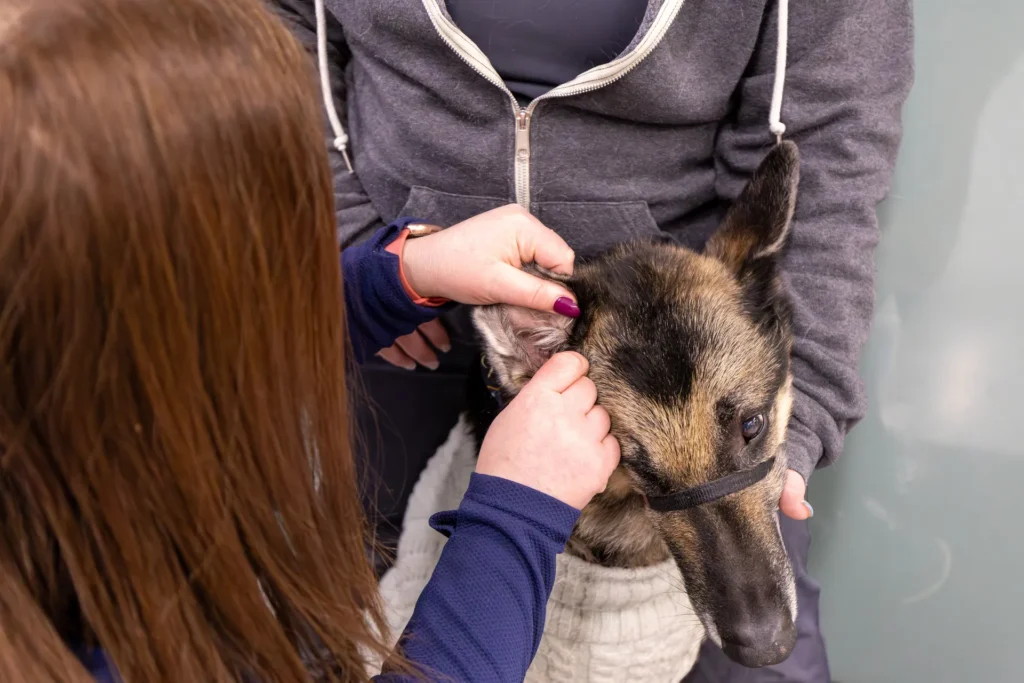Senior Preventive Care
Pets enter their senior years around six to nine years old, depending on breed and size. During this stage, they become more susceptible to age-related issues like arthritis, kidney disease, and hormonal imbalances.
Why Senior Wellness Matters:
- Twice-Yearly Checkups: More frequent exams help us detect conditions early when they’re most treatable.
- Senior Wellness Screening: Bloodwork, urinalysis, and other diagnostics build a clear picture of your older pet’s health.
- Tailored Care Plans: We adjust diets, exercise routines, and medications to keep your senior pet comfortable.

By focusing on proactive monitoring and individualized support, we strive to help your senior companion stay active, happy, and pain-free throughout their golden years.
What we offer as part of our Senior Preventive Care
Senior Wellness Exams
Diagnostic Screenings
Pain Management & Mobility Support
Frequently Asked Questions
When is my pet considered a senior?
Most dogs and cats are considered senior around six to nine years old, depending on breed and size. Larger dogs may show signs of aging earlier.
How often should older pets be examined?
We recommend twice-yearly exams to catch problems early. Seniors can experience rapid health changes, so regular checkups are key.
Do senior pets still need vaccinations?
Yes, but we may adjust the schedule or types of vaccines based on overall health and lifestyle. Discuss any changes with your veterinarian.
What are common signs of age-related pain or discomfort?
Symptoms include limping, reluctance to jump or climb, changes in appetite, and altered behavior. If you notice these, let us know.
How can I make my senior pet more comfortable at home?
Provide soft bedding, easy access to food and water, and slip-free flooring. Speak to us about diet adjustments and pain management options if needed.
Other services

Wellness Exams

Vaccinations for Dogs & Cats

